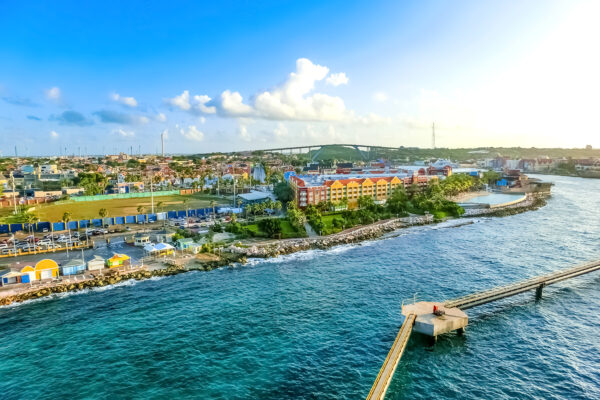
The Dutch government has intervened on Curaçao to break what it described as an “antidemocratic” impasse on the island.
The government of what is nominally an autonomous country within the Kingdom of the Netherlands had requested the intervention to reconstitute the island legislature. “At the moment,” Prime Minister Eugene Rhuggenaath said earlier this week, “democracy isn’t functioning on Curaçao as it should be.”
All ten opposition lawmakers refused to attend virtual meetings of the Estates, denying the ruling parties, who also have ten seats, a quorum to swear in a tie-breaking deputy: Emmilou Capriles, who succeeds Jeser El Ayoubi.
The Dutch government has now appointed Capriles by decree.
The same opposition lawmakers tried to use the death of a ruling party lawmaker to bring down the government last summer. They failed, but not before encouraging riots.
Coronavirus
The parties oppose the state of emergency Rhuggenaath has declared to cope with the outbreak of coronavirus disease on Curaçao as well as the reforms he has agreed in order to qualify for financial support from the European Netherlands, without which his government, starved of tourism revenue, would surely go bankrupt. Measures include cutting public-sector salaries and red tape, lowering the cost of doing business, making it easier to hire and fire workers and speeding up the issuance of permits.
Coronavirus has caused unemployment to skyrocket. One in two workers are jobless. 50,000 out of the island’s 160,000 residents are dependent on food aid.
In addition, Curaçao houses some 30,000 refugees from Venezuela and other Caribbean islands.
Elections
It is the third time in four years that The Hague has intervened in the politics of Curaçao.
In 2019, it stepped in when the island exceeded its borrowing limit for the third year in a row.
In 2017, the Dutch gave extraordinary powers to Curaçao’s governor, Lucille George-Wout, to stop the then-ruling parties, who are now in opposition, from canceling an election.
Elections are due on March 19, two days after parliamentary elections in the European Netherlands.
